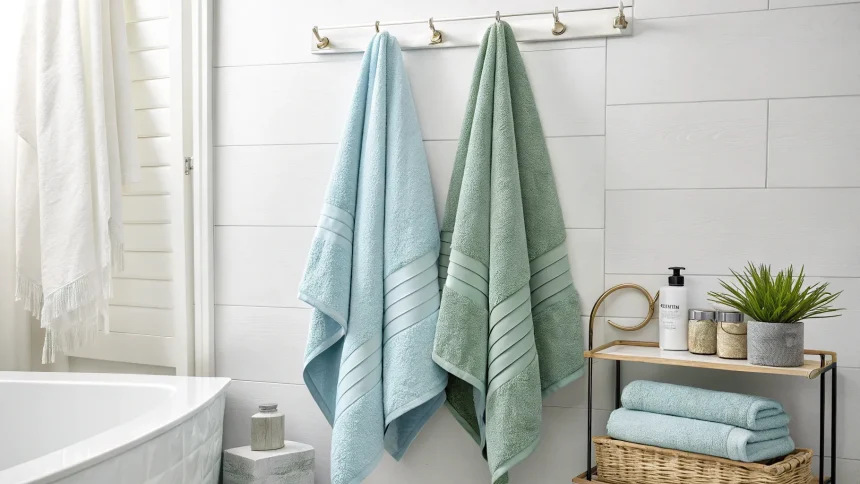A recent debate between roommates Ava and Lynsey has highlighted the tension between personal hygiene preferences and environmental concerns in everyday household decisions. At the center of their disagreement is whether each person should use their own dedicated towel or share towels to reduce laundry loads.
Ava maintains that individual towel usage is preferable, likely citing hygiene concerns and personal comfort. Meanwhile, Lynsey argues that this practice creates unnecessary laundry and has negative environmental impacts due to increased water and energy consumption.
The Hygiene Perspective
Proponents of individual towel usage, like Ava, often point to hygiene benefits. Personal towels can reduce the risk of bacterial transfer between users and may prevent skin conditions from spreading. Many dermatologists recommend using separate towels, especially for those with sensitive skin conditions or compromised immune systems.
Health experts note that towels can harbor bacteria when they remain damp for extended periods. When multiple people use the same towel, there’s potential for cross-contamination, particularly if the towel doesn’t dry completely between uses.
Environmental Considerations
Lynsey’s position reflects growing concerns about household resource consumption. Each load of laundry uses approximately 15-30 gallons of water, plus the energy required to heat that water and run the dryer. Multiplied across millions of households, these resources add up significantly.
Environmental scientists have documented that frequent washing of textiles also contributes to:
- Microplastic pollution from synthetic fibers
- Chemical runoff from detergents
- Carbon emissions from energy usage
- Shortened lifespan of textiles, creating more waste
Finding Middle Ground
Household management experts suggest several compromises that might satisfy both perspectives:
“Color-coding towels while still washing them on the same schedule could address hygiene concerns without increasing laundry frequency,” suggests home organization consultant Maria Chen. “Another option is using smaller individual face towels while sharing larger bath towels.”
Some households have found success with scheduled towel rotation systems, where each person has their designated towel that gets changed on a regular basis, optimizing both hygiene and laundry efficiency.
The debate also raises questions about how households make sustainability decisions. Research shows that environmental impact often comes from cumulative small choices rather than major lifestyle changes.
“Many people focus on visible environmental actions like recycling, while overlooking household water and energy usage that happens behind the scenes,” notes environmental psychologist Dr. James Moretti.
The towel disagreement represents a common household negotiation where personal preferences must be balanced against shared resources and environmental impact. As more consumers become environmentally conscious, these everyday decisions take on greater significance in overall sustainability efforts.
Whether households choose individual or shared towels, experts recommend washing bath towels every 3-5 uses and hanging them to dry completely between uses to minimize both bacterial growth and environmental impact.









